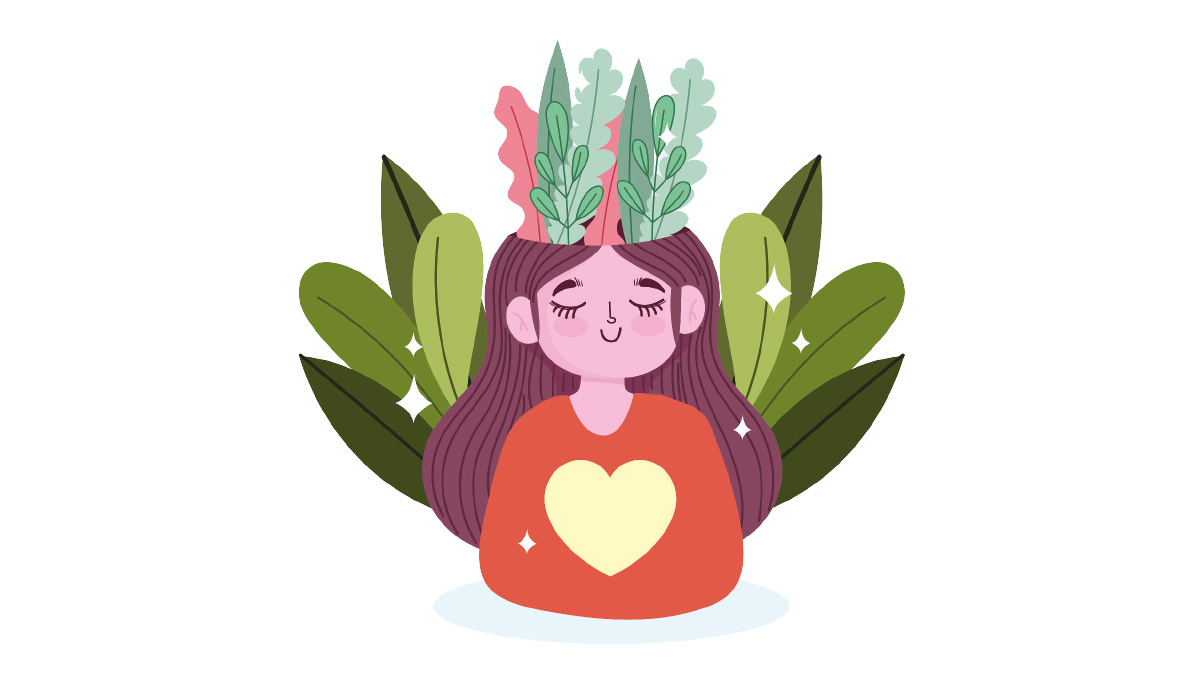Si mantenemos en orden esta parte de nuestra vida, podremos manejar todas las demás
La Organización Mundial de la Salud (OMS) define salud mental como “un estado de bienestar en el cual el individuo es consciente de sus propias capacidades, puede afrontar las tensiones normales de la vida, trabajar de forma productiva y fructífera, y es capaz de hacer una contribución a su comunidad”.
La salud mental es tan importante pues sin ella, no hay salud física.
El bienestar emocional, psicológico y social de una persona es muy importante en la toma de decisiones, en la manera que se relaciona con los demás y en su diario vivir, desde la niñez hasta la vejez.
Síntomas
Cuando una persona carece de salud mental se ven afectadas las diferentes áreas de su vida, comenzando con su forma de pensar, de visualizar los episodios de la vida y, por consiguiente, su manera de actuar, manifestando características como aislamiento, frustración, cambios alimenticios o de sueño, falta de energía, dolores y molestias inexplicables.
Además, experimenta sentimientos de impotencia y desesperanza, se siente inusualmente confundido, olvidadizo, enojado, preocupado, asustado, con notables y variables cambios de humor sin provocación alguna, pensamientos obsesivos y en casos avanzados puede escuchar voces, pensar en lastimarse a sí mismo o a otros.
En esta etapa también manifiesta incapacidad para realizar tareas cotidianas, como cuidar a sus hijos, limpiar la casa, asistir al trabajo, escuela, negocio, etcétera.
Ser emocionalmente saludable no significa ser feliz todo el tiempo, sino ser consciente de sus emociones y poder lidiar con ellas, sean positivas o negativas. Las personas sanas emocionalmente también sienten estrés, enojo, tristeza, pero saben cómo gestionarlas y cuando sienten que los está sobrepasando, entonces buscan asesoría de un profesional de la salud mental: psicólogo, psiquiatra, consejero.
Qué hacer
Hay técnicas o recomendaciones para mantener o mejorar la salud mental, como por ejemplo aprender a identificar sus emociones, poner nombre a lo que siente e identificar qué le ocasiona ese desajuste, trabaje para cambiar aquello que lo provoca.
No se guarde los sentimientos, exprese de forma apropiada aquello que le molesta pues al guardarse lo que siente aumenta el estrés, sólo elija bien el lugar, la persona y el tiempo de expresarlo.
Encuentre el equilibrio entre las actividades que realiza y el descanso, tome tiempo para realizar lo que le gusta y disfruta, entre otras más.
Dios sabiendo los desafíos que enfrentaríamos nos deja recomendaciones, una de ellas muy puntual para mantener esa salud mental:
Dirija sus pensamientos hacía todo lo que sea constructivo y positivo.
Conserve este tipo de actitud, colabore en mejorar sus vínculos con otros.
Todo lo verdadero, todo lo respetable, lo justo, puro, amable, digno de admiración, en fin, todo lo que sea excelente o merezca elogio.
Mental Health
If we keep this part of our life in order, we will be able to manage all the others
The World Health Organization (WHO) defines mental health as “a state of well-being in which the individual is aware of his or her capabilities, can cope with the normal stresses of life, can work productively and fruitfully, and can contribute to his or her community.”
Mental health is so important because there is no physical health without it.
A person’s emotional, psychological, and social well-being is essential in decision-making, relating to others, and daily living from childhood to old age.
Symptoms
When a person lacks mental health, different areas of their life are affected, starting with the way they think, the form or visualize the episodes of life and, consequently, the way they act, manifesting characteristics such as isolation, frustration, eating or sleeping changes, lack of energy, unexplained aches, and pains.
In addition, they experience feelings of helplessness and hopelessness, unusual confusion, forgetfulness, anger, worry, and fear, with noticeable and variable unprovoked mood swings, obsessive thoughts, and, in advanced cases, may hear voices thinking of hurting themself or others.
At this stage, they also manifest an inability to perform daily tasks, such as caring for their children, cleaning the house, going to work, school, business, etc.
Being emotionally healthy does not mean being happy all the time, but being aware of your emotions and being able to deal with them, whether positive or negative. Emotionally healthy people also feel stress, anger, and sadness. Still, they know how to manage them, and when they think they are overcoming them, they seek advice from a mental health professional: psychologist, psychiatrist, or counselor.
What to do
There are techniques or recommendations to maintain or improve mental health, such as learning to identify your emotions, name what you feel, remember what causes that imbalance, and work to change what causes it.
Do not keep your feelings to yourself; express appropriately what bothers you because keeping what you feel increases stress. Just choose the place, the person, and the time to say it.
Find the balance between your activities and rest, and take time to do what you like and enjoy, among others.
God, knowing the challenges we would face, leaves us recommendations, one of them being very punctual to maintain that mental health:
Direct your thoughts towards everything constructive and positive.
Keep this kind of attitude, and collaborate in improving your relationships with others.
All that is true, all that is respectable, just, pure, kind, worthy of admiration, all that is excellent or deserves praise.

